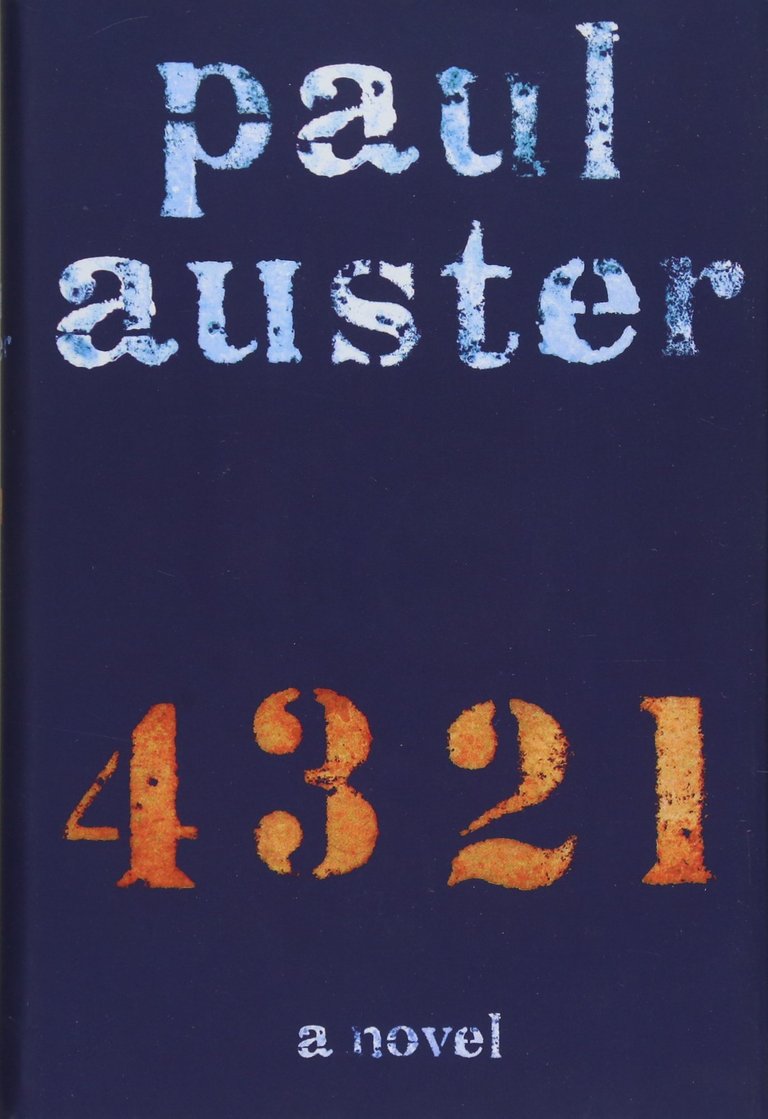For the past couple weeks I've been reading Paul Auster's newest novel, 4 3 2 1, an 866-page tome of a book that tells the four independent life stories of the same person...

On March 3rd, 1947, in the maternity ward of Beth Israel Hospital in Newark, New Jersey, Archibald Isaac Ferguson, the one and only child of Rose and Stanley Ferguson, is born. From that single beginning, Ferguson's life will take four simultaneous and independent fictional paths. Four Fergusons made of the same genetic material, four boys who are the same boy, will go on to lead four parallel and entirely different lives. Family fortunes diverge. Loves and friendships and intellectual passions contrast. Chapter by chapter, the rotating narratives evolve into an elaborate dance of inner worlds enfolded within the outer forces of history as, one by one, the intimate plot of each Ferguson's story rushes on across the tumultuous and fractured terrain of mid-twentieth-century America. A boy grows up - again and again and again.
With an idea like that, and then an in-flap like that, how could I not read it?

Further, each Ferguson's life isn't sequentially but side-by-side. 1.1 is followed by 1.2, then 1.3, then 1.4, and then 2.1, returning to Ferguson-1. As such, it becomes easy to confuse them. So this is just my first impressions based off of one read of the book.
Dense, sprawling, messy, epic in scope and ambition. I adored it. The exploration of possibility, how seemingly minor changes can alter the course of your life, the way random chance and different cards dealt really do change you.
There are parallels and similarities. People who appear in one will appear in another, or all of the others, often in quite different forms. Three Fergusons go on to become writers, though each works in a different field from the rest.
I for one enjoyed it immensely. It is one of the best books I ever have read - though I say this without having read Dickens, Tolstoy, or any of the other great writers, so you may take that with a grain of salt. After all, it perhaps is not an informed opinion, just an opinion.
It does make me wonder how my life might've changed had there been seemingly minor changes to it.
The story was enlivened by so much - the parallels, the differences, the similarities - but one thing that really elevated it was the backdrop of America in the 60s, that unique landscape of the Kennedy and Johnson years, of which Ferguson largely plays observer.
For the many differences between them, certain aspects of Ferguson's character remain the same: an unusual and surprising precociousness and a certain aloofness. Certainly he is far more precocious than I was when he was thirteen, and sure enough, at nineteen he is a great deal more precocious and intelligent than I am.
I will, eventually, read this again, and when I do, probably I will read it one Ferguson at a time, instead of side-by-side like they are arranged in the book. But that is a few years away, I expect - I have much to do and read between now and then.
